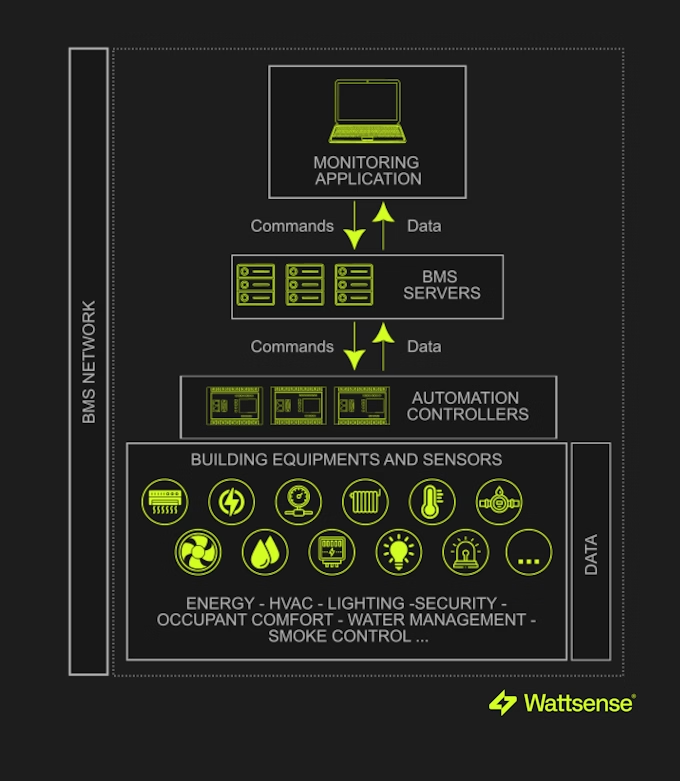Building Management Systems
Building Management Systems
- What is a BMS ?
- How it works?
- What is its role ?
What is a BMS ?
Building Management Systems (BMS) enable property owners to oversee and control essential building operations, including air conditioning, heating, ventilation, lighting, and energy supply systems. These systems efficiently manage multiple energy sources, such as electricity, gas, and rooftop solar panels, ensuring seamless integration and optimal performance. A well-designed BMS allows for individual control of each system, providing owners with comprehensive oversight.
The term “Building Automation System” (BAS) is often used interchangeably with BMS, emphasizing the automation aspect of these systems. Once properly configured, a BMS requires minimal manual intervention, operating largely on its own. However, the term “Integrated Building Management System” is typically used when referring to large-scale applications, such as condominiums, commercial buildings, and public facilities. In these settings, a BMS functions as a sophisticated, computer-based automation system, ensuring efficient and centralized management of building operations.


How it works?
A Building Management System (BMS) allows building managers and owners to go beyond mere performance monitoring. It enables operators to optimize individual systems, such as air conditioning and other essential functions, ensuring more efficient energy use and cost reduction. Additionally, a BMS provides owners with a comprehensive overview of their building’s performance, transforming it into a smart building. This not only enhances operational efficiency but also reduces administrative tasks while maximizing energy savings.
What is its role ?
Daily, building management systems allows to :
- Control of the different building systems
- Real-time monitoring: HVAC, air quality, humidity level, noise pollution
- Regular reporting and operations scheduling
- Break-in and alarm monitoring and reporting
- Energy management system for consumption optimization and improved efficiency
- Produce data reports

